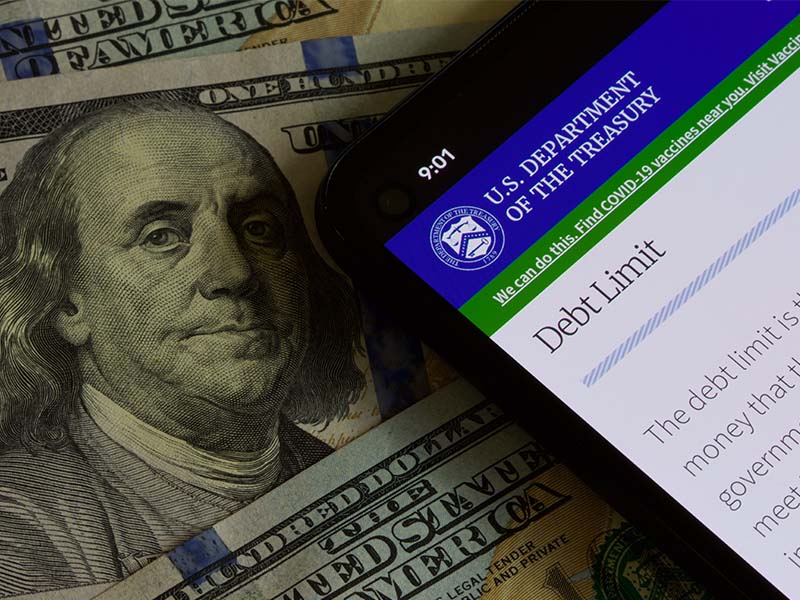Celeb Shot
This Debt-Crisis Threat Is Real
Award-winning political journalist John Harwood explains why the current standoff risks serious economic damage.

Dozens of times in recent decades, Congress has dutifully raised the federal debt limit to let government keep paying its bills. Because it’s happened without severe economic disruption, American business assumes the same this year.
That’s no longer a safe assumption.
Changed circumstances have escalated the risk of politically-induced damage that could tip the economy into recession. Not only will the path toward resolution shake financial markets, but resolution now depends on markets being shaken.
This is fundamentally different from previous Congressional debt limit fights.
Traditionally it has been an unpleasant chore that allows political opponents to accuse those voting to raise the debt limit of profligacy. But since all involved accepted that it was necessary to protect America’s economic standing, the pressure point remained a mild one – not pressed very hard.
The Republican Party’s evolution has made it something more dangerous. For the zealously combative faction controlling the House, the unpleasant chore has become a powerful partisan weapon.
That became evident during the Obama administration in 2011, after the Tea Party wave swept Republicans into control of the House. GOP resistance took the country to the brink of default before a spending-cut deal brokered by then Vice President Biden and Senate Republican leader Mitch McConnell made the House relent.
The fiasco triggered the first credit-rating downgrade in American history, which the Bipartisan Policy Center estimates has cost taxpayers $20-billion in higher borrowing costs. And the spending-cut deal proved so politically unsustainable that both parties later abandoned it.
The failure of that deal demonstrated that the ostensible goal of reducing U.S. debt isn’t really the point. The point is wielding the most potent available club against a Democratic president.
Spending reduction remains a secondary objective, since the limited category of spending Republicans seek to reduce are nowhere near enough to balance the budget. Washington indeed needs a bipartisan deficit-reduction compromise before long, and reaching one now would have the added benefit of reducing inflationary pressures. But Republicans have ruled the critical ingredients of selected taxes increases and Social Security and Medicare cuts.
The 2011 crisis led Obama to swear off further negotiations over the debt limit. He held that line the rest of his term. The threat vanished for the Trump White House because Republicans – even as their tax cuts swelled the deficit – had no interest in challenging their own party’s president. Congress raised the debt limit with little fanfare.
Now President Biden, trying to hold Obama’s no-negotiations stance, faces a House GOP tilted further toward populist truculence. Some members don’t even agree the debt limit needs raising, dismissing Wall Street warnings as scare talk from a “woke” business establishment.
Narrow passage of a House proposal to pair a short-term debt limit increase with severe cuts in non-defense “discretionary” spending and a rollback of Biden’s climate initiatives doesn’t substantially change the calculus. It has no chance of becoming law.
It will accelerate budget negotiations among Biden and Congressional leaders of both parties(which the White House unconvincingly maintains are unrelated to the debt limit). But it remains far from clear that Speaker Kevin McCarthy – with a slim majority and tenuous hold on his job – can guide his party toward a deal the White House can accept.
The possibility that McCarthy can’t has drawn increasing attention to longshot ploys through which some Democrats contend Biden could raise the debt limit via unilateral executive action. The White House considers those options a last resort. Likely legal challenges and investor wariness make them risky at best.
Treasury is already deep into accounting maneuvers letting them delay the point at which government can no longer borrow to pay its obligations. When that default “x-date” arrives depends on the pace of tax collections.
But time is short. The default date could come within six weeks. A market crash rocking stock values and voters’ retirement accounts may be the only thing that can make the House yield.
Events aren’t easy, but working with WSB is. WSB works with thousands of respected influencers, thought leaders, and speakers each year and our experienced sales team is committed to the success of your event. For more economy speaker ideas, please contact us.
